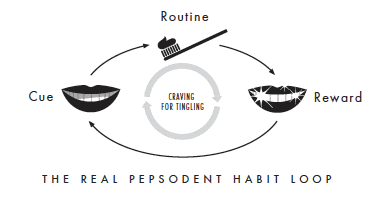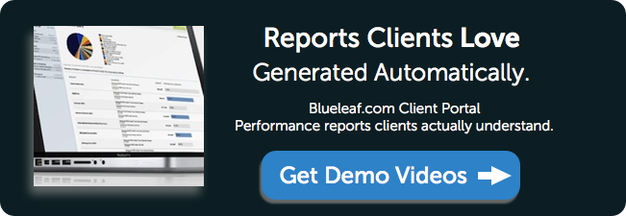Last Updated on July 20, 2020 by Carolyn McRae
When was the last time you walked up to the sink to brush your teeth and felt overwhelmed?
It probably hasn’t EVER happened, but let’s think about what brushing your teeth really entails:
- Go into the bathroom
- Open the medicine cabinet door
- Pick up your tooth brush

- Turn on the cold water
- Hold the brush under the running water
- Remove it from the running water
- Pick up the toothpaste
- Open the toothpaste cap
- Hold the tube so the opening hovers over your toothbrush bristles
- Squeeze the tube so the correct amount onto the brush
- Stop squeezing
- Put the cap back on the toothpaste tube
- Rest the toothpaste back in the medicine cabinet
- Put the toothbrush in your mouth
- Brush your teeth with the bristles (all of them)
- Spit out remaining toothpaste foam
- Rinse your mouth with water
- Rinse the toothbrush with water
- Put the brush back in the cabinet and close the cabinet.
Wow, I’m exhausted. How are we able to do all this without getting stressed, or even thinking about it?
As Charles Duhigg points out in his book, The Power Of Habit: Why We Do What We Do In Life And Business…
“Without habit loops, our brains would shut down,
overwhelmed by the minutiae of daily life.”
Whether we realize it or not, habits are ingrained in us. As Duhigg notes in his book, “Habits… emerge because the brain is constantly looking for ways to save effort.” Toward the center of the skull is a golf ball sized lump of tissue called the basal ganglia, which takes over during habitual activities, so that the more complex portions of the brain are free to think beyond these mundane routines.
I can hear you wondering where I’m going with this, so let me pull it back into the world of financial planning.
Think for a minute about a time when you bought new software for your practice. How did it feel the first few times you tried to use it? Was every little step excruciatingly strenuous? Did you want to go back to your previous method/habit? How does it feel now that you use it on a daily basis? It’s old hat, right? You don’t even think about the steps to take to perform those functions that help you run your business more efficiently, which frees your mind to think ‘big picture’.
We all develop habits in our lives. Clients, too. The good news is we can intentionally learn new habits.
How? Scientists have identified the habit loop. Simply put, there are three pieces to a habit: A cue (or trigger), a routine, and a reward. Basically, something happens and our mind identifies it as the cue (i.e. it’s time for bed). The brain then goes into auto pilot and performs a routine (brushing your teeth). This routine then produces a reward (your mouth feels fresh as your head hits the pillow).

The BIG question is, how can we leverage this in our business? Can we use this to help clients who have been “in the habit” of feeling stressed and worried about their finances? What would it be like if we could train our clients to develop new habits that would alleviate their stress and worry?
First we must identify opportunities for better habits. For instance:
Client Receives Bonus –> Suggest Habit To Save
What if we could help clients alter their habit loop around bonus time? The typical trigger is the bonus hits their account. The routine is that they simply spend down their bonus, and the reward is temporary stress relief. The new routine might be that we help them calculate how much to keep in their account, investing the rest in their brokerage account for a trip they plan to take in 10 years. The reward then becomes excitement for the future and provides the family with something to look forward to down the road.
Client is Financially Disorganized –> Offer Organized Habit
Many clients initially walk in the door financially disorganized. They have accounts in various places, have no idea how their investments are performing and simply don’t have time to track all of this information.
Here is their current habit loop. The trigger (or cue) is stress coming from the fear of not knowing where they stand with their finances. The routine is that they panic, scramble to find their usernames and passwords to log into their various accounts, check their balances and haphazardly calculate their performance information over the prior period. The reward is that the unknown becomes known, creating a sense of relief because they have identified where they stand.
What if we could simplify this habit loop for clients? Might that show them that we actually do add value to the relationship outside of managing investments?
A way I’ve seen advisors tackle this is through automatically aggregating accounts. The trigger remains the onset of stress, yet the routine is streamlined because the client simply locates ONE username and password, logs into their dashboard and views the entire portfolio. You can accomplish this with automated software.
Take it a step further and we can actually groom our clients to adopt this process as a habit by sending a periodic email to remind them of these capabilities, sometimes automatically with no work from us. Over time, they know exactly what to do to ease their financial worry, freeing their mind to focus on the more important things in life, like how to create more time with their family. And that’s just one technique to help clients form productive habits in their financial lives.
Many habit loops exist in our clients’ lives. Our job is to identify them and provide a more effective alternative, allowing clients to focus on the important things. In this way, we help them use money as a tool to live the lives they want to live.
What are some habit loops that you’ve identified, for you or clients? How have you altered them to create more efficiency? I welcome your commentary below.

Photo credits: childhood101, mymoneyblog